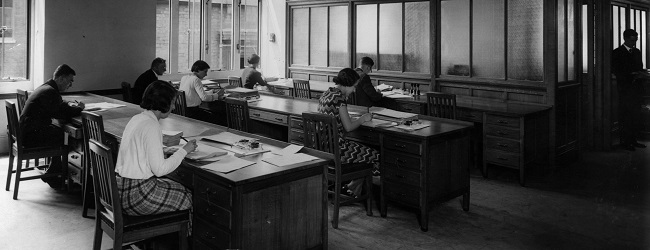Our story

Early beginnings
Our Institute began life in 1948 as a group of likeminded men and women committed to best practice. We started with a simple aim – to forge a London chapter of the Institute of Internal Auditors – and before we knew it, word spread nationally, with groupings forming in Birmingham, the Northwest, The Northeast and Scotland.
In 1975, these five groups merged to form what is now the Chartered IIA. Our ambition was to deliver a coordinated approach to developing the profession - collectively and as individual practitioners, who by the mid-1970s numbered in their hundreds. The year 1976 saw the publication of a magazine for members – “Internal Auditing” – now “Audit and Risk” and, in the early ‘80s, we renamed ourselves the IIA UK. During this time, practitioners were also coming together in Ireland and Northern Ireland and in 1999 the IIA - UK and Ireland took shape.
We moved to our current headquarters in Clapham in the early 1980s and launched our very first qualification, with the designation “MIIA”. And, as the institute and the profession began to establish itself, recognition of its value and influence began to grow.
Growing awareness and increased recognition
The 1992 Cadbury report was the first to give a nod to internal audit as interest in the concept of good corporate governance grew. Further recognition of the value of internal audit came in 1999, with the publication of the Turnbull Report – which set out best practice on internal control for UK-listed companies – and later the 2003 Smith guidance for audit committees of listed companies – which endorsed the IIA Internal standards. As our membership count passed 5,000, we were well on our way to becoming the recognised champion of internal audit in the UK and Ireland.
Fast forward five years and the financial crisis of 2008 highlighted the importance of proper oversight of risk management, internal control and good corporate governance. As analysis of the causes of the financial crises became clearer, it was evident that internal audit needed a stronger role and positioning within the corporate governance framework of financial institutions. The publication of our Code for Effective Internal Audit in The Financial Services Sector in July 2013 was designed to achieve this.
The profession was gaining greater traction in the public sector too and in 2012, the Institute was a key player in the creation of the Public Sector Internal Audit Standards, which established a common set of internal audit standards across the whole of the UK public sector. It was also in 2012 that the Irish Government adopted the International Standards for the Professional Practice of Internal Auditing. These globally recognised standards underpin all of our codes and technical guidance.
Completing the reach of professional practice internal audit across the sectors, we will early in 2020 launch a further code of practice, this time for the rest of the private sector outside of financial services, and the Third sector.
A new vision and mission
Whilst the profession is maturing at an ever-increasing rate in the UK and Ireland, reinforced by the award of Chartered Status in 2010, our passion for our profession and the role it can play in the governance of organisations remains as strong as ever.
Today, we are leading the voice of the profession in the UK and Ireland and are part of a global community of 180,000 internal auditors in 190 countries.
Our vision is that professional internal audit will be recognised as essential to the success of organisations and their leaders; and that the Institute will be recognised as essential to the success of internal audit professionals.
Our mission, meanwhile, is to support and develop internal audit professionals throughout their careers, and to promote the role and value of the profession.
To achieve this, our key strategies are designed to:
- Stimulate demand for the profession
- Create demand for the institute's services
- Improve the supply of the institute's services
- Improve supply of professional internal auditors








